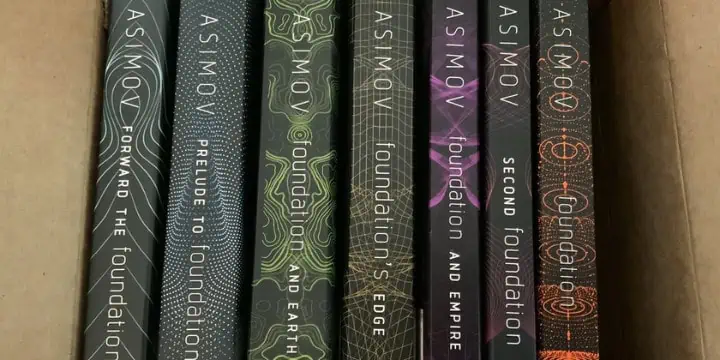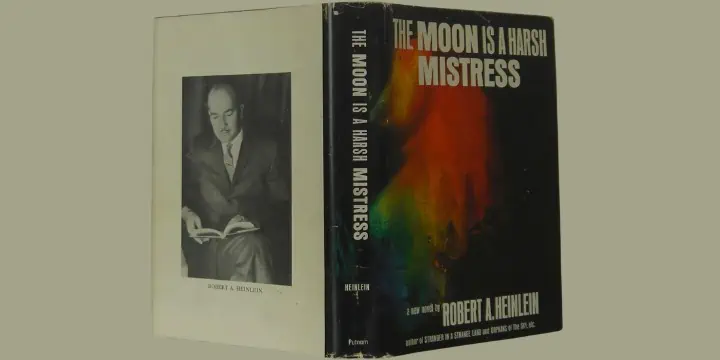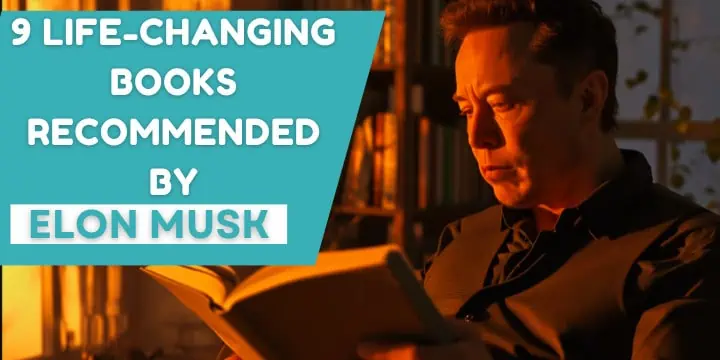Elon Musk’s ability to inspire us to dream big is truly remarkable. Known for his success with Tesla and SpaceX, Musk’s brilliant mind is constantly at work. When asked about his path to becoming a rocket-building genius, Musk simply credits it to his love of reading. In fact, he devours books and generously invites us to explore his personal library and discover some of his favorite reads.
1. “Foundation Series” by Isaac Asimov

Isaac Asimov’s “Foundation Series” immerses readers in a captivating science fiction universe set in a distant era where humanity has expanded across the galaxy. The narrative delves into the epic saga of a vast galactic empire’s decline and the valiant efforts of mathematician Hari Seldon to avert an impending dark age by establishing a foundation dedicated to preserving knowledge and steering humanity’s course. Asimov skillfully delves into themes of sociology, technology, and the essence of civilization, intricately weaving together complex plots and characters spanning millennia. This gripping narrative is a testament to ambition, foresight, and the profound influence of knowledge in shaping the destinies of entire worlds.
2. “The Moon Is a Harsh Mistress” by Robert Heinlein

In Robert Heinlein’s “The Moon Is a Harsh Mistress,” readers are transported to a futuristic world where humanity has established a colony on the moon. The plot centers on the lunar inhabitants’ quest for independence from Earth’s dominion. At the heart of the story is Manuel “Manny” Garcia O’Kelly-Davis, a skilled computer technician who becomes a key player in a rebellion against Earth’s oppressive regime, aided by an advanced artificial intelligence known as Mike.
This novel delves into profound themes such as freedom, resistance, and the moral complexities of governance. Through a gripping narrative, Heinlein intricately explores political scheming, societal dynamics, and the formidable task of constructing a new civilization in the unforgiving lunar landscape. With its thought-provoking ideas, well-developed characters, and brisk pacing, “The Moon Is a Harsh Mistress” offers an enthralling blend of science fiction and political intrigue that will captivate readers seeking both intellectual stimulation and thrilling storytelling.
3. “Life 3.0: Being Human in the Age of Artificial Intelligence” by Max Tegmark

In “Life 3.0: Being Human in the Age of Artificial Intelligence,” Max Tegmark, a renowned physicist and cosmologist, delves into the profound implications of artificial intelligence (AI) for humanity and society. Through a thought-provoking exploration, Tegmark presents a spectrum of scenarios ranging from utopian possibilities to dystopian realities that could emerge as AI technology progresses.
The title “Life 3.0” symbolizes a theoretical phase in the evolutionary trajectory of life where artificial intelligences outshine biological organisms, potentially reshaping the very fabric of existence on Earth. Tegmark delves deep into existential questions surrounding consciousness, ethics, and the future landscape of employment in a world where AI systems could potentially surpass human capabilities across various domains.





